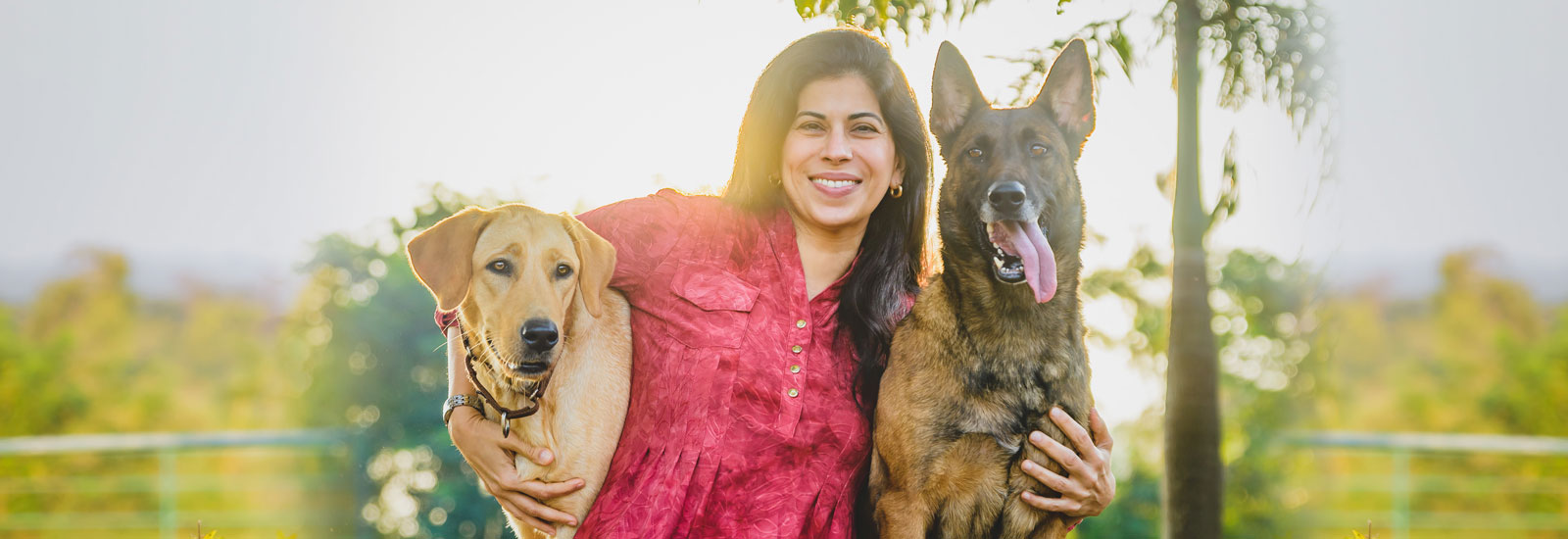
A wee little problem
Bessie, at eight months, was the perfect lady. A dainty Dachshund, she was elegant, well mannered and gentle natured. But she had one embarrassing problem… Bessie would urinate all over herself every time she met a man! Her owner was disturbed by this plebeian behaviour. Why was Bessie doing this? Was she trying to say something?
To an extent, yes, Bessie was trying to communicate in a manner that is perfectly normal canine behaviour. Being a sensitive dog, she was overwhelmed by the rough way in which she was greeted by men and was carrying out a submissive act to appease the aggressor.
When a pup is young, its mother rolls it onto its back and licks it to stimulate urination and defecation. What starts as a reflex response to its mum’s care, soon grows into a learnt behaviour; the pup accepts being turned over as a dominant act and lying on its back and urinating as a submissive act. As the pup matures, it uses this behaviour to signify submission and acceptance of another’s higher rank when it is threatened; it may not necessarily roll over, but will crouch low and urinate. Under normal circumstances a higher-ranking canine won’t continue to challenge a dog that is showing submission.
This deferential behaviour is seen frequently in puppies and young adults but as the dog gains confidence with age, the behaviour wanes. An adult dog can continue to carry out this behaviour if it is shy or sensitive, been rough handled as a puppy, overly punished or lacks confidence. Interestingly, in almost every case where this behaviour is seen in adult dogs, there is a history of dominant handling or training, or excessive punishment at some point in the animal’s life.
Luckily for most owners, few dogs carry out the behaviour after one year of age. Here are some corrective measures you can take if it continues to be a problem. But, before you do anything, you should first schedule a visit to the vet to rule out any medical condition that may be contributing to the problem.
Keep greetings low key
If you have a problem where your dog greets you at the front door by urinating, don’t bend over and rub his tummy. Instead, give him an alternative to behaving submissively.
Stand upright and encourage the dog to perform a sit or a down and then reward the command. This gives him something else to think about.
You can also ignore the dog at the front door and walk in, calling out to the dog to follow you, or toss a toy for the dog to fetch. The dog will have to follow or chase and running is incompatible with submissiveness.
If you have an easily excitable pet, it would be a good idea to keep your greeting mellow rather than rowdy to prevent your dog from making a mess.
Build confidence
The more confident the dog, the less likely it is to show submissive behaviour. Shy and sensitive dogs, like Bessie, need their confidence bolstered.
Playing competitive games such as tug-of-war helped boost the Bessie’s confidence. She was suspicious of playing initially, as she was convinced she would lose, but with a bit of encouragement from her owner Bessie started enjoying the game.
Her owner was instructed by the trainer to allow Bessie to win the toy at the first attempt she made to hold it. It took a few days to get the shy dog to readily play the game.
Guests to the house were also instructed to engage Bessie in a tug game and to let her win most of the time. In time, Bessie shed her bashful behaviour and there was a marked reduction in the submissive behaviour.
Watch your body language
Submissive behaviour mostly occurs when a dog feels threatened and is trying to appease the threat. Why, you may ask, all this talk of challenges and submissiveness when all you’ve done is to reach out to pet a dog? Dogs are extremely sensitive to our body language and we often don’t realise how confrontational and dominant our posture is when we greet a dog. When we bend over, make eye contact and pet the dog on top of the head, we may be just saying hello. A dog reads it as a dominant posture and a sensitive dog will react by behaving submissively.
Changing our posture and the greeting can make a big difference to the way the animal perceives us. When greeting a dog, approach from the side rather than the front, don’t bend over and avoid direct eye contact unless you know the dog, and pet the dog under the chin not on top of the head.
Small changes in your body language will go a long way in making a sensitive dog feel comfortable in your presence.
Punishment makes it worse
Submissive behaviour is an involuntary behaviour carried out when the dog wants to defuse what it considers an aggressive situation. The urination that occurs is not a spiteful act but an unconscious behaviour.
Owners think the dog is doing it on purpose to spite them and their response is to scold the dog every time it acts submissively and urinates. Shouting and scolding will only exacerbate the problem; the more you get angry, the more dominant you appear, and the more the dog will be inclined to carry out the behaviour to appease you. In fact, some fearful dogs continue to show this behaviour as they age, only when being punished. It is an indication that the dog has been punished too much in the past.
And don’t swing to the other extreme either by praising or coddling the dog every time it acts submissively. The best way to get rid of the behaviour is to ignore timid behaviour and reward confident behaviour.
- Pros and Cons of Crate Training May 30, 2022
- All You Need to Know About Weimaraners April 25, 2022
- All you need to know about the German Shepherd Dog or the Alsatian April 18, 2022
- Caramel and Miss Kay’s Adventures through Neurodiversity April 13, 2022
- Why does my dog eat grass? April 08, 2022
- Animal Laws every Indian must know April 04, 2022
- Does my dog need other doggie friends? March 30, 2022
- All you need to know about Labrador Retrievers March 29, 2022
- That’s a nosey hello! What do dogs get from smelling each other’s behinds? March 17, 2022
- What it’s like to live with a Beagle March 16, 2022
- 5 Signs of a Good Trainer March 14, 2022
- submit review July 21, 2020
- A letter for pet parents at this difficult time… March 28, 2020
- The Benefits of Adopting a Senior Dog February 09, 2020
- Why Does My Dog Steal Food? September 22, 2019
- Embarrassing Habits September 14, 2019
- Submissive Urination September 04, 2019
- Teenage Trouble August 25, 2019
- Home Alone August 16, 2019

